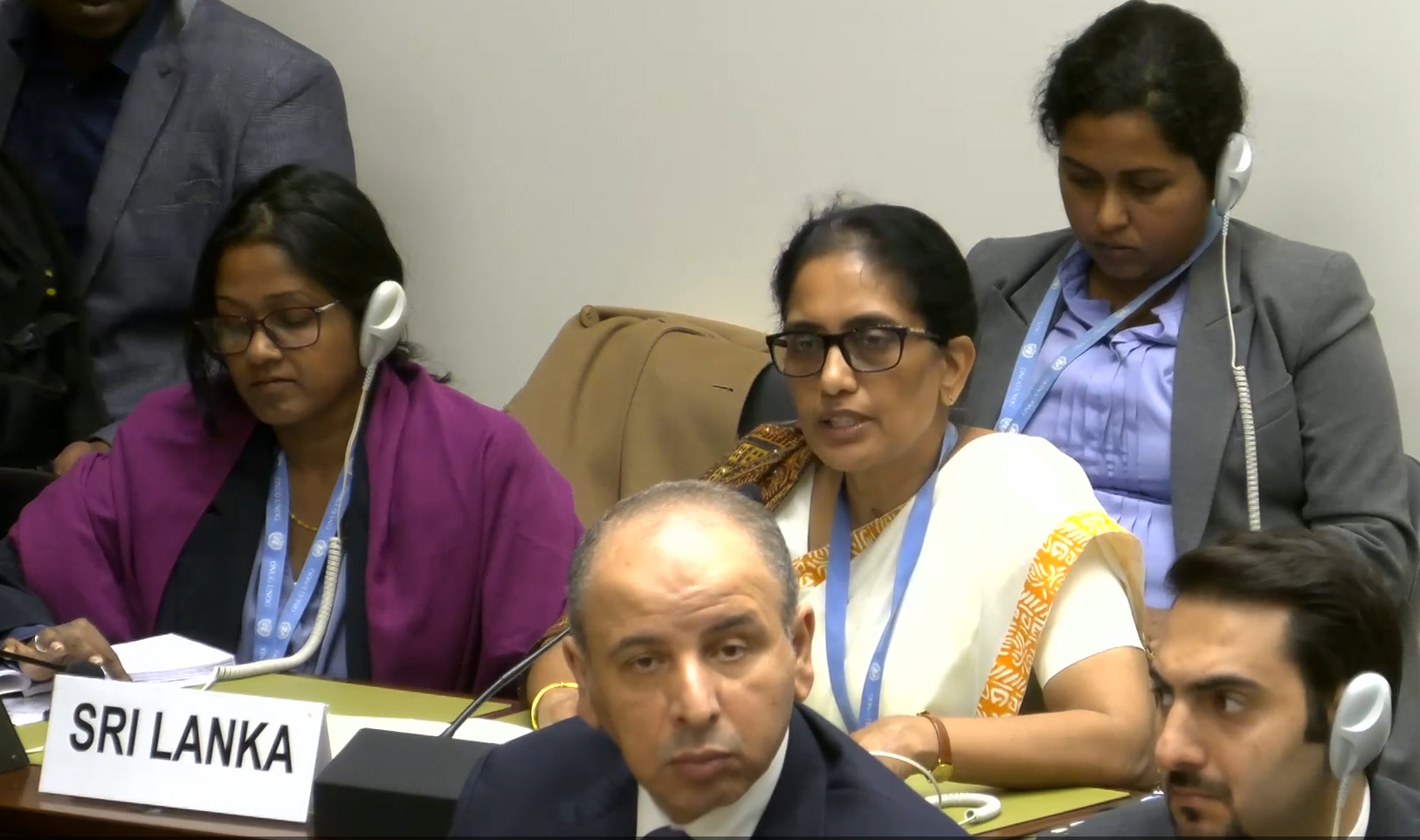
Mr. President,
Sri Lanka participated in discussions on this resolution in a spirit of open and constructive engagement, that we have demonstrated throughout in our interactions with this Council.
We appreciate the core group’s engagement on language amendments proposed by Sri Lanka. We however regret that we couldn’t find agreement on certain key concerns for us.
While we thank all delegations for their constructive participation on the draft text, Sri Lanka particularly wishes to thank very sincerely, those countries which made positive suggestions during informal consultations and bilateral meetings.
As Sri Lanka had indicated from the beginning to the core group, our fundamental issue with the text is the reference to resolution 51/1 of 2022 denoting the external evidence gathering mechanism on Sri Lanka within the OHCHR, which, in our view is an unprecedented and ad hoc expansion of the Council´s mandate.
Participating in the Interactive Dialogue on Sri Lanka on 8th September, the Hon. Minister of Foreign Affairs reiterated that Sri Lanka does not accept the external evidence gathering mechanism set up by the OHCHR, which it has labelled as the `Sri Lanka Accountability Project`, at a time when the Government is continuing to strengthen the domestic institutions based on its genuine commitment to reconciliation and human rights in the interests of our own people. The ongoing domestic processes include strengthening the independent Offices on Missing Persons and Reparations, and the Office for National Unity and Reconciliation, as well as the operationalization of a truth and reconciliation commission, and an independent Public Prosecutor´s Office.
Sri Lanka, as well as many other countries, have repeatedly questioned the credibility and transparency of how this Project within the OHCHR was set up, its work and the budget allocated to it. After 4 years of its existence, this Council is yet to see any benefits of this Project for the people of Sri Lanka. This is clearly evident from the contents of the High Commissioner’s Report as well. The extension of its mandate will only serve the interests of elements with vested interests seeking to create divisions and polarize the communities in Sri Lanka, and will be counterproductive to the Government’s efforts on promoting unity, reconciliation and human rights.
Mr. President,
We firmly believe that genuine nationally owned processes are best placed to address matters relating to human rights. National processes are rooted in the local context, allow for greater ownership, recognize unique sensitivities, and make implementation of action more efficient and effective.
The High Commissioner for Human Rights who visited Sri Lanka in June this year had the opportunity to experience firsthand the “momentum of change” across all segments of the Sri Lankan society and the “genuine openness of the Government to address issues”. In his report to this Council too, the High Commissioner highlighted that there is a historic opportunity in Sri Lanka to implement transformative reforms. As set out by the Hon. Minister of Foreign Affairs in his statement to this Council, within a very short time, the Government has taken a series of tangible and decisive steps on reconciliation and human rights. Therefore, it is only fair that Sri Lanka be allowed to seize this opportunity to advance the rights of its own people through domestic processes.
For these reasons, we do not agree with coercive international action, and we reject resolution 60/L.1/Rev.1 presented to this Council.
Thank you.
